How highly do you value leads in your business?
For any small or medium business, leads should be the most highly prized currency — to be consistently sought and converted.
Without a steady flow of new opportunities, how do you grow? How do you take things to the next level? How do you prepare for the future?
There is one simple lead generation system that EVERY single business should be using and MANY are not — even though it’s absolutely FREE.
It is practically guaranteed to bring in a steady flow of opportunities if you design a system around it; yet most businesses either treat it as an afterthought or let it take care of itself completely.
LinkedIn? Facebook? Events? Webinars?
No. We’re talking about client referrals.
The low-hanging fruit
Many business owners admit that they get most of their clients by “word-of-mouth”. But ask them what system they use and they stare back blankly.
At the same time, they waste marketing dollars on campaigns (SEO, social media, paid search) designed to generate leads but which often don’t live up to expectations.
The truth is that they could be MUCH more effective in tapping into the large pool of warm leads right there under their noses!
Client referrals really are the low-hanging fruit when it comes to generating leads. Why spend more of your valuable resources to climb the ladder and pick the apples at the top of the tree if there are plenty of crisp and tasty ones lower down? It makes no sense.
To start realising the potential of client referrals, get smarter about designing a system around them. It should not be a matter of hope.
By following the nine steps below, you can implement a system that allows you to pick the lowest- hanging fruit much easier…
Your 9-step lead referral system
- Get clear on your value proposition
What are you able to provide that most other businesses cannot?
For your client referral system to work in the long run, you need to understand your key selling points: why you’re unique. Peel back the ‘layers’ of your business and define what makes you special.
Keep this in mind, as you will use it to ‘sell’ the idea of your business to existing clients and to new ones.
Ask yourself: Why would businesses refer their clients to me rather than to one of the many thousands of businesses out there?
- Trim your existing client list?
This step may seem a little odd. But many business owners are busy looking after low-value or ‘problem’ clients that result in limited time to properly serve higher value clients — or to take on new business.
If you are “flat out” looking after problem clients who bring little value to your business, find a way to trim them so that you can focus on more profitable new business: perhaps recommend them to another business that can better serve their needs? You may even be able to earn a referral fee from it!
- Start by asking the question to your closest clients
The best way to get referrals is to simply ask the question. Yet this can be a perceived obstacle for some business owners. They feel awkward in asking for business and prefer to appear “flat chat” all the time.
There’s no harm in being busy but — as per point two above — what are you busy with? Profitable business or fire-fighting? The day you stop asking for new business is the day your firm stops growing.
If you have invested time in building relationships with your most valued clients, there is no reason why you cannot approach them by email or in the next meeting for a couple of names of businesses owners who would benefit from the unique service you provide (defined in point 1 above).
Start with the real low-hanging fruit to gain practice and confidence for asking the rest of your database.
- Segment your database: Ask the right question in the right way
Once you are comfortable with asking the question, you need to systemise it so that it becomes part of your process of doing business.
You should consistently ask the question of both existing and new clients — and even of prospects.
For instance, with a prospect who has downloaded a free eBook or received a free business health check-up and found it useful, is it possible that they know others who would find these resources useful?
Most likely there would be: so your lead referral system can include those who are not yet clients of yours.
If you have not segmented your database, you will need to identify clients by their value, how long they have been with you, or what stage of the sales funnel they have reached.
You cannot shape your questions to a client of 10 years in the same way as you would ask a client of three weeks or a prospect who is not yet with you.
- Set expectations from day one
Even before a prospect becomes a client, start setting the expectation for referrals.
Make it clear when they sign up: should they find your services of as much value as you would expect (just like all the other clients you show them via testimonials), you will request at least two referrals from them.
You can even specify “after the job is done”, “after one month”, or “after six months” (if they become an ongoing client).
- Deliver on the expectation
After you’ve set the expectation and the time comes around, make sure you ask for the referrals as promised.
Automate reminders for this part of the process.
Decide whether you will ask only for contact details (email address, phone number) or a face-to-face introduction. A meeting may be possible if there is an urgent need for your services.
If there is no immediate need, request the details of businesses who may appreciate receiving your newsletter. You can include them in your mailing list or refer blog posts to them to help build the relationship over time.
- Expand your horizons
Lead referral is not confined to your clients. As a business owner, you probably have a vast network of professional service experts such as accountants, lawyers, financial planners, banking contacts, etc.
Think a little laterally here and include these professionals in your referral system — start expanding beyond your immediate circle.
- Get creative
Get creative with your ongoing referral system. Include a line in your email signature asking clients or prospects if they know anyone who would benefit from the value you provide (defined in Step 1, remember!)
Alternatively arrange special events that provide clients with value adds — and ask them to bring two business associates for free.
- Show your appreciation
Whenever you receive a referred lead, don’t forget to thank the referrer — whether or not it results in business for you.
The fact that they have trusted you enough to refer one or more of their valued network to you is an excellent sign that you are doing the right things.
Show that you appreciate the relationship — a verbal or emailed ‘thank you’ may be enough. Or you may like to take it a step further and send a card or gift.
What could this look like for your business?
The maths on client referrals is as simple as it is eye-opening.
Say a business has 100 clients. And say that each client is worth around $5,000 per year to you.
Conservatively, imagine that one in three of these clients are able to refer two other businesses to you per year — and you have a 50% conversion rate on the referrals.
Before you start your referral program you have:
100 clients x $5,000 = $500,000 revenue
After the first year of your referral program you have:
The original 100 clients x $5,000 = $500,000 revenue
+
(100 x 33%) = 33 clients who referred x 2 referrals each = 66 referrals x 50% conversion rate = 33 new clients x $5000 each = $165,000 in new revenue.
TOTAL REVENUE NOW: $665,000 (33% growth)
Then imagine this compounded over the years. It’s excellent growth for your business just from referrals. Plus, you have all your other marketing activities bringing in other leads.
Few businesses can afford to let such an opportunity pass as they build their futures.
Implement the nine steps above and you will be well on the road to securing a steady flow of leads to your business from your existing client base and your prospects.

